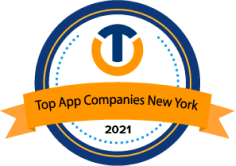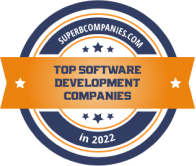AI in Software Development: Exploring Opportunities & Challenges
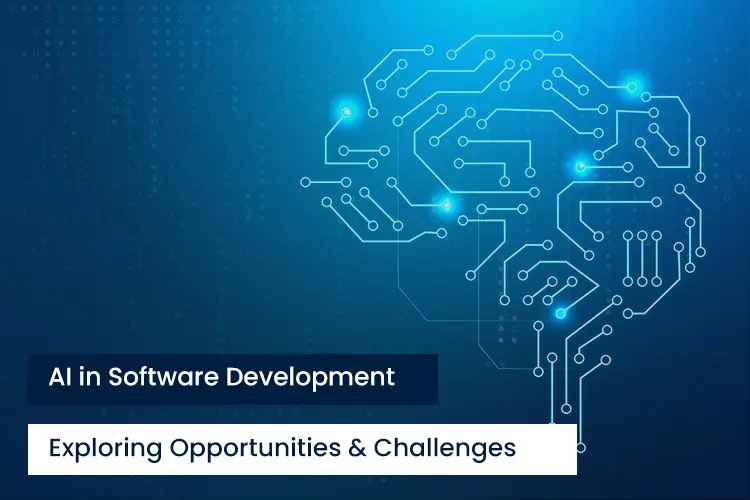
Are you ready to revolutionize your software development process, but finding yourself entangled in a web of questions? Wondering how AI in Software Development could truly transform your software endeavors? Fear not, for you’re about to embark on a journey that not only answers your queries but unveils a world of boundless possibilities.
In the rapidly evolving landscape of technology, the integration of Artificial Intelligence (AI) into various industries has been nothing short of transformative. One of the domains experiencing this seismic shift is software development.
The integration of AI and software development has opened up new horizons, revolutionizing how software is conceptualized, built, tested, and maintained. However, as with any major innovation, the realm of AI in software development is not without its set of opportunities and challenges.
In this comprehensive exploration, we will delve deeply into the world of AI in software development, meticulously examining both the boundless opportunities it presents and the intricate challenges it poses.
What are the Opportunities it Offers?
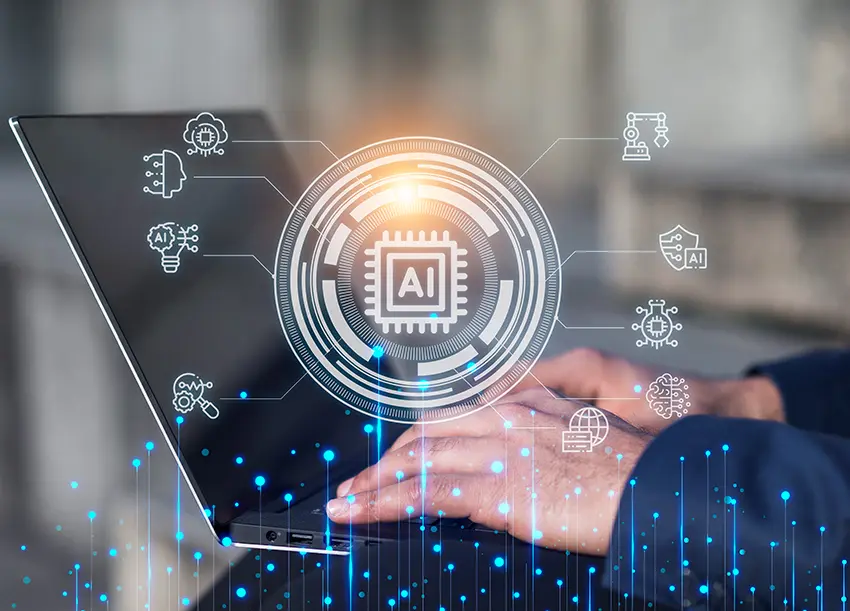
1. Automated Code Generation
AI has ushered in a new era of software development by enabling automated code generation. Leveraging AI-powered tools, developers can now conceptualize high-level specifications that AI algorithms then translate into actual code snippets or even entire modules. This catalyzes the development process, mitigates the potential for human errors, and elevates the overall quality of the codebase.
2. Bug Detection and Resolution
AI’s analytical prowess shines in the realm of bug detection. Advanced AI algorithms are capable of meticulously scrutinizing code, and pinpointing potential bugs, vulnerabilities, or performance bottlenecks that might evade the human eye. By facilitating automated code analysis, developers can identify and rectify issues in the nascent stages of development, preventing them from snowballing into more significant problems later.
3. Enhanced Testing
Testing is an integral part of software development, and AI has irrevocably altered the testing landscape. Through simulation and extensive testing scenarios, AI ensures that software remains resilient and performs optimally across a diverse array of conditions. As a result, the end product is not only more robust but also attuned to real-world demands.
4. Natural Language Processing (NLP) for Requirements
The barrier between human and machine understanding has significantly diminished with the advent of Natural Language Processing (NLP). In software development, NLP-powered tools extract requirements directly from natural language documents, effectively bridging the gap between developers and stakeholders. This enhanced communication streamlines development and fosters a deeper alignment with business objectives.
5. Predictive Analytics
AI’s predictive capabilities are harnessed to anticipate potential issues or downtimes based on historical data and usage patterns. This proactive approach enables developers to perform maintenance and resource allocation in a well-informed manner, averting disruptions and enhancing user experiences.
6. Continuous Integration and Deployment
The marriage of AI and software development has given rise to streamlined Continuous Integration and Continuous Deployment (CI/CD) pipelines. AI-driven automation takes charge of tasks like code review, build testing, and deployment, culminating in accelerated software delivery cycles without compromising reliability.
7. Code Optimization
The efficiency of software applications is dramatically improved through AI-driven code optimization. Machine learning algorithms meticulously analyze code performance, suggesting refinements that lead to efficient resource allocation and superior software performance.
8. Personalized User Experiences
The user experience has taken center stage in modern software development. AI’s data analysis capabilities empower developers to create personalized user interfaces by studying user behaviors and preferences, resulting in more engaging and user-friendly applications.
9. Automated Documentation
Keeping software documentation up to date can be a Herculean task. AI-driven tools adeptly generate documentation for code, APIs, and libraries, ensuring that developers and end-users are equipped with accurate and current information.
10. Collaborative Development
AI’s role in software development transcends mere automation. Collaborative coding is facilitated through AI’s prowess in suggesting code completions, improvements, and even innovative approaches. This fosters a culture of knowledge-sharing and collective growth among developers.
11. Domain-Specific Solutions
AI empowers Software developers to create domain-specific solutions with exceptional precision. Industries such as healthcare, finance, and manufacturing can benefit from AI-driven software that understands and addresses sector-specific challenges and requirements.
12. Rapid Prototyping
AI tools enable developers to rapidly prototype and experiment with ideas. This iterative approach accelerates the creative process, allowing developers to explore multiple concepts and refine their vision before committing to a final product.
13. Resource Allocation Optimization
AI algorithms can analyze resource utilization patterns and make recommendations to optimize hardware and infrastructure allocation, leading to cost savings and improved performance.
14. Adaptive Learning
AI-driven software can adapt to user behavior and preferences over time. This adaptability enhances the user experience by tailoring the software’s functionalities to individual needs.
15. Automated Updates and Maintenance
AI can automate the process of identifying and applying updates, patches, and maintenance tasks, ensuring that software remains secure and up to date without manual intervention.
16. Real-time Data Analysis
AI facilitates real-time data analysis, allowing software to respond to changing conditions and data inputs instantaneously. This is particularly valuable in applications that require swift decision-making based on dynamic information.
17. Enhanced Collaboration Tools
AI can create intelligent collaboration tools that analyze team interactions and provide insights for improved communication, project management, and coordination among developers.
18. Fraud Detection and Prevention
In sectors like finance and e-commerce, AI-powered software can detect unusual patterns and behaviors, enabling early fraud detection and prevention.
19. Complex Problem Solving
AI can assist in solving complex technical challenges that might be time-consuming or infeasible for humans alone, unlocking new possibilities in software innovation.
20. Automation of Mundane Tasks
AI frees developers from routine and mundane tasks, allowing them to focus on more creative and strategic aspects of software development, ultimately leading to more innovative solutions.
The integration of AI into software development has created a symphony of opportunities that resonate throughout the software development lifecycle. From automating code generation to revolutionizing testing and optimization, AI has etched its mark on every facet of software engineering. With each opportunity, however, comes the responsibility to address challenges like bias mitigation, ethical considerations, and skill gap bridging.
What are the Challenges it Brings?

1. Data Privacy and Security
While AI empowers software development through data-driven insights, it also raises significant concerns regarding data privacy and security. AI systems require substantial amounts of data for training, often including sensitive information. Ensuring that this data is handled securely and in compliance with privacy regulations is a pressing challenge.
2. Bias and Fairness
AI’s decision-making can inadvertently reflect biases present in the training data. This challenge extends to software development, where biased AI algorithms might lead to unfair outcomes, perpetuating social inequalities. Addressing bias and ensuring fairness in AI-generated solutions is an ethical imperative.
3. Lack of Domain Knowledge
AI, though advanced, might lack a nuanced understanding of specific industries or sectors. This challenge becomes pronounced when developing software solutions for domains that require deep domain expertise. Ensuring that AI-driven solutions align with the intricate requirements of different industries remains a hurdle.
4. Complexity and Skill Gap
The integration of AI into software development requires a holistic understanding of both AI principles and software engineering practices. Bridging the skill gap and cultivating a workforce proficient in both domains is essential but challenging. Developing this hybrid expertise demands comprehensive training and education initiatives.
5. Ethical Considerations
As AI plays an increasingly active role in software development decisions, ethical considerations gain prominence. For instance, when AI autonomously generates or modifies code, the ethical implications of its choices must be carefully navigated. Developers need to proactively engage with ethical frameworks to ensure responsible AI-driven development.
6. Unpredictable Creativity
AI’s capabilities, while astounding, might struggle with the nuanced creativity and problem-solving skills inherent to human developers. In domains that demand innovative thinking, AI-generated solutions might lack the ingenuity required to devise novel solutions.
7. Reliability and Trust
The reliability of AI-driven software solutions is of paramount importance. When AI takes autonomous actions or decisions, ensuring transparency in its decision-making process becomes essential for building trust among developers and users. The challenge lies in striking a balance between automation and maintaining a clear understanding of how AI arrives at its conclusions.
8. Integration Complexity
Incorporating AI tools into existing software development workflows and processes can be complex. Ensuring that AI seamlessly integrates with established methodologies, tools, and practices requires careful planning and meticulous execution.
9. High Costs
Developing and maintaining AI-driven software tools is resource-intensive. It requires investments in terms of time, expertise, and financial resources. Balancing these costs with the anticipated benefits is a strategic challenge that organizations must carefully navigate.
10. Regulatory Challenges
As AI becomes increasingly integrated into software development, regulatory frameworks might need to evolve to accommodate this changing landscape. Adapting existing regulations to address the unique challenges posed by AI-generated software presents a challenge in ensuring compliance while fostering innovation.
11. Interpretable AI
Understanding how AI arrives at its decisions can be challenging, particularly with complex models like deep neural networks. Creating AI solutions that are interpretable and explainable is essential for ensuring accountability and making informed decisions.
12. Limited Context Understanding
AI might struggle to fully comprehend the broader context or specific nuances that human developers naturally grasp. This limitation could result in AI-generated solutions that technically work but fail to capture the complete essence of a problem or requirement.
13. Adversarial Attacks
AI systems, including those used in software development, can be vulnerable to adversarial attacks. Malicious actors might exploit vulnerabilities in AI algorithms to manipulate or compromise software, leading to potential security breaches.
14. Data Quality and Availability
The effectiveness of AI models heavily relies on the quality and quantity of training data. Ensuring clean, diverse, and representative datasets can be challenging, as can obtaining sufficient data in cases where relevant data is scarce.
15. Algorithmic Bias Mitigation
Addressing bias in AI systems requires complex algorithmic adjustments and ongoing monitoring. Developing techniques to effectively detect and mitigate bias in AI-driven software development tools is a continual challenge.
16. Dependency on Training Data
AI models learn from historical data, which might not always capture the full range of possible scenarios. This can lead to AI solutions that struggle to handle novel or unprecedented situations effectively.
17. Interdisciplinary Collaboration
Effective AI integration in software development often requires collaboration between AI experts and software engineers. Bridging the gap between these disciplines and fostering productive communication is crucial yet challenging.
18. Maintenance and Updates
Maintaining and updating AI-powered software introduces challenges, as changes to the AI model or underlying algorithms can affect the entire system’s behavior. Ensuring that updates do not introduce unintended consequences or disruptions is an ongoing concern.
19. Unforeseen Consequences
The complexity of AI systems can lead to unforeseen behaviors or unintended consequences that might not become apparent until the software is in production. Anticipating and addressing these challenges requires continuous monitoring and adaptation.
20. Resource Demands
AI-powered solutions can demand significant computational resources, which might pose challenges for organizations with limited computing infrastructure or financial constraints.
Wrapping it Up
The fusion of AI and software development has unleashed a wave of opportunities that transcend traditional boundaries. From expediting development through automated code generation to fostering personalized user experiences, AI has ushered in a new era of software innovation. Yet, this frontier is not devoid of challenges.
The need to address bias, manage ethical considerations, and navigate the complexities of AI integration demands vigilance and adaptability. Striking a balance between harnessing AI’s potential and mitigating its inherent challenges is the key to unlocking a future where AI and human ingenuity harmonize to create software solutions that transcend expectations.
We’re honored to mention that our efforts have been recognized by renowned B2B review and research platforms such as GoodFirms, Clutch, MirrorView, and many more.
Want more information about our services?
Similar Posts
How To Find The Most Reliable Remote Microsoft Power BI Consultants and Companies for Hiring?
Let’s rewind the event of March 2020, worldwide outbreak of Covid-19 left everyone in shock and life seemed to be at halt for quite sometime. Plenty of cases everyday and the count is still going on. However with new data being added we have moved a step closer each time to the vaccine development program....

AngularJS vs ReactJS vs VueJS: Which is Best for Your Business?
Are you facing the daunting task of choosing the perfect front-end technology for your business? Wondering which framework will best suit your needs and propel your projects toward success? Look no further! In this comprehensive blog, we aim to answer the burning question on every developer’s mind: AngularJS vs Top 3 Frontend Technologies: Which is […]...
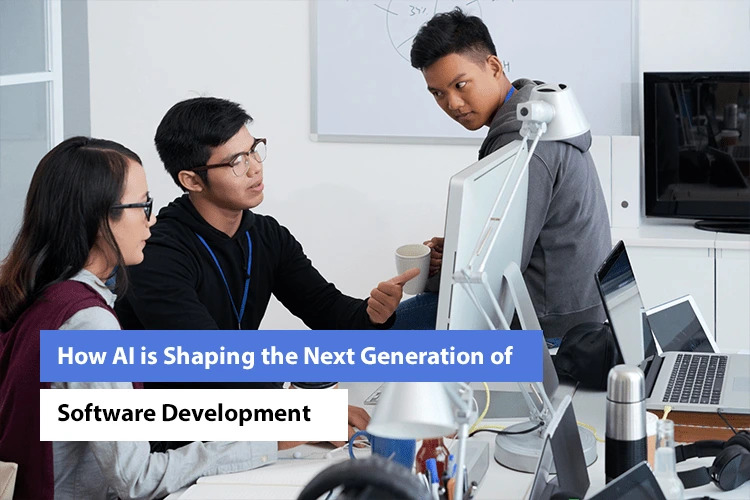
How AI is Shaping the Next Generation of Software Development
Artificial intelligence is the most discussed topic in technology. It is frequently the subject of office conversations on Slack. International headline news also features artificial intelligence. AI technology continues to witness significant development and rapid growth. ChatGPT’s success, with over a hundred million users in two months, has flagged the manner for sustained boom and […]...




